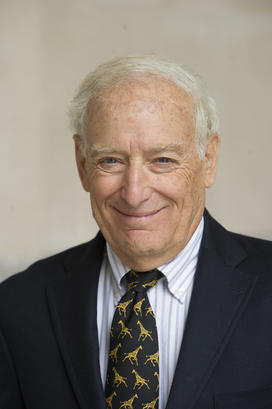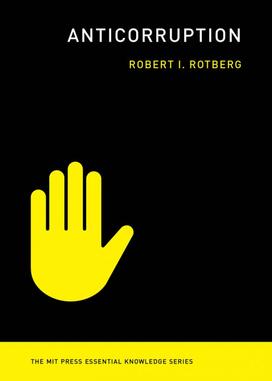Robert Rotberg *57 Studies Corruption to Teach Anticorruption

Rotberg argues in Anticorruption (MIT Press) that it is a nation’s leader who wields the most influence and is the deciding factor on whether a country is corrupt or not. Going one step further, Rotberg also offers a series of 13 practical steps for nations to promote anticorruption and heal the corruption plaguing their governments.

Opening lines: Corruption is an insidious cancer of nearly all bodies politic. Corrupt practices harshly cut across classes and castes, disturb institutions, destroy communities, and infect the very structure of people’s lives. Corruption corrodes nations, even the most advanced, and saps their moral fiber. Moreover, corruption is invasive and unforgiving. It degrades governance, distorts and criminalizes national priorities, and privileges skimming natural resource wealth, patrimonial theft, and personal and family gains over concern for the commonweal.
Much of the globe is infected with corruption, sapping as much as 3 percent of annual per capita GDP in large swathes of Africa, Asia, and Latin America. Even North America is hardly immune. The World Bank says that $1 trillion or more is lost each year to corruption, globally.
The corruption complaint has become central to citizens’ concerns almost everywhere in the world. Charges and countercharges surge across social media; politicians accuse their competitors of corrupt behavior. Elections are regularly contested with corruption as a fundamental theme, as we have seen recently in such diverse nations as Argentina, Brazil, Canada, El Salvador, Hungary, India, Israel, Italy, Kenya, Malawi, Mexico, Nigeria, Pakistan, South Africa, Thailand, Zambia, and Zimbabwe. Cries against corruption in national political life are also heard in China and the United States. Corruption, in sum, is among the key overriding issues of our age.
Conquering corruption, or at least moderating political or corporate corrupt behavior, helps underprivileged peoples to prosper and to begin to experience substantially better human outcomes. Combating corruption is among the important initiatives that materially strengthens overall human outcomes.
Fortunately, we now know how best to battle against corruption, and what measures work and what ones do not. We know that altering collective behavior provides lasting answers to the corrupt imperative. We also know now that committed leadership is critical to drives against corruption. Strengthened institutions come after national leaders have enunciated and presided over an emerging political culture antithetical to continued corruption. That is, institutions alone cannot counter corrupt practices unless leaders exercising political will have socialized their citizens to accept a political culture of probity. This book sets out these propositions at length, and argues against older theories of how and why corruption exists, the primacy of institutions, and how corruption can best be diminished in public and corporate life.
Review: "Robert Rotberg offers a comprehensive, yet compact, examination of how corruption corrodes societies in which it is allowed to take hold, and how to combat it."
—Porchligh











1 Response
Norman Ravitch *62
5 Years AgoUniversal Corruption
Yes, Willie Sutton robbed banks because that was where the money was.
More seriously, I don’t fault Professor Rotberg for studying corruption. However, it is like explaining sin. We all know what it is but not how to stop it. Neither religious authorities, nor governments, nor educators, nor politicians have ever found a way. I am glad Professor Rotberg has found corruption to be universal, but that only makes it impossible to blame any country, any profession, any race, and gender, etc. So what have we then? The human race is what it is and we have to live with it. Most people realize this. Those who don’t can bang their heads against a wall or become a professor.